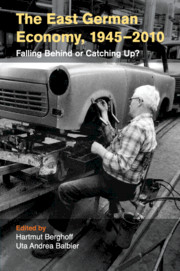
- Cited by 4
-
Cited byCrossref Citations
This Book has been cited by the following publications. This list is generated based on data provided by Crossref.
Tymiński, Maciej 2022. Managers in the command economy: Case studies from Poland, 1956-1970. Business History, Vol. 64, Issue. 1, p. 156.
Unkovski-Korica, Vladimir and Vejzagić, Saša 2023. Business history goes East: An introduction. Business History, Vol. 65, Issue. 7, p. 1119.
Opriș, Alexandra M Visu-Petra, Laura and Brown, Norman R 2023. Living in history and by the cultural life script: What events modulate autobiographical memory organization in a sample of older adults from Romania?. Memory Studies, Vol. 16, Issue. 4, p. 912.
ابراهيم المعموري, شذى محمد and خضر الجبوري, فراس صالح 2023. التعددية الحزبية في تركيا 1945-1950. Journal of Tikrit University for Humanities, Vol. 30, Issue. 7, 2, p. 176.
- Publisher:
- Cambridge University Press
- Online publication date:
- October 2013
- Print publication year:
- 2013
- Online ISBN:
- 9781139343206


